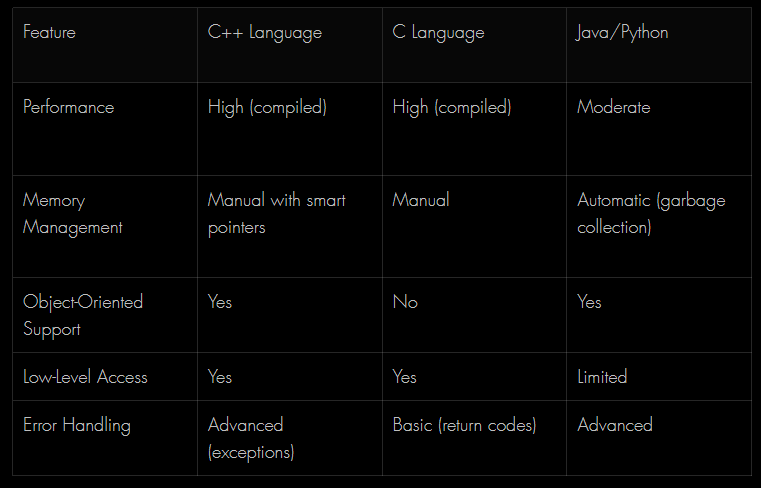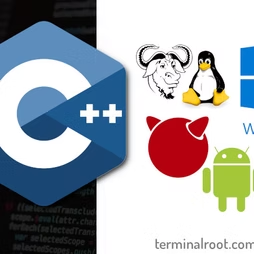C++ has emerged as a powerful language in the realm of operating system development, combining the efficiency of C with advanced programming paradigms. This blog explores why C++ is often regarded as a secure and effective choice for operating system development, compares it with other programming languages, and discusses its limitations.
Why C++ is Ideal for Operating Systems
1.Object-Oriented Programming Features
C++ introduces object-oriented programming (OOP) concepts such as classes, inheritance, and polymorphism. These features promote code reusability and modularity, making it easier to manage complex systems like operating systems. By encapsulating data and behaviour, developers can create more organized and maintainable code.
2.Performance Efficiency
Like C, C++ is a compiled language that translates code directly into machine code, ensuring high performance. This efficiency is crucial for operating systems that require quick response times and optimal resource management. C++ also allows for fine-tuning of performance-critical sections of code.
3.Low-Level Access and Control
C++ retains the low-level capabilities of C, allowing developers to interact directly with hardware and memory. This access is essential for tasks such as device driver development and system-level programming, where performance and control are paramount.
4.Standard Template Library (STL)
C++ comes with a rich Standard Template Library (STL) that provides ready-to-use data structures and algorithms. This library enhances productivity by allowing developers to leverage pre-built components rather than implementing them from scratch, thereby reducing development time.
Comparison with Other Languages
In the comparison below, C++ stands out for its combination of high performance and object-oriented features. While languages like Java and Python offer automatic memory management through garbage collection, they may introduce overhead that can affect performance in resource-constrained environments.

Limitations of C++ Language
- Complex Syntax: The syntax can be intricate, especially for beginners who may struggle with concepts like templates and multiple inheritance.
- Manual Memory Management Risks: While smart pointers help mitigate memory management issues, improper use can still lead to memory leaks or dangling pointers.
- Steeper Learning Curve: The combination of low-level programming capabilities and OOP features can make C++ more challenging to learn compared to simpler languages.
- Longer Compilation Times: Due to its complexity and features like templates, C++ can have longer compilation times compared to languages like C.
- Limited Standard Library Compared to Higher-Level Languages: Although the STL is robust, it may not be as extensive as the libraries available in languages like Python or Java.
Conclusion
C++ remains a compelling choice for operating system development due to its blend of performance, control over hardware resources, and support for modern programming paradigms. While it does have limitations—particularly regarding complexity and memory management—it continues to be relevant in scenarios where both efficiency and security are critical. By understanding its strengths and weaknesses, developers can make informed decisions about when to use C++ versus other programming languages in their projects.


Discussion
Start the conversation
No comments yet
Be the first to share your thoughts on this article. Your insights could spark an interesting discussion!